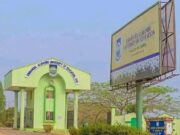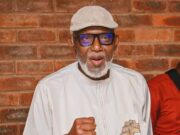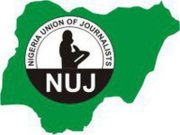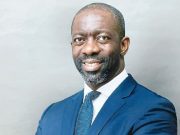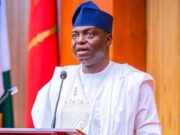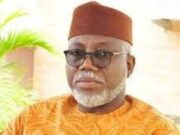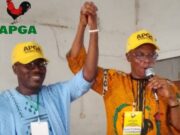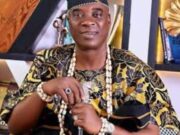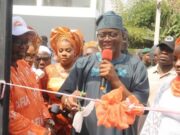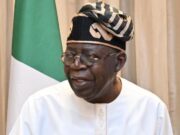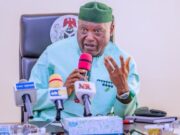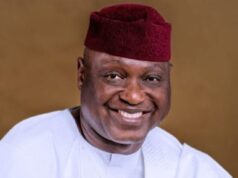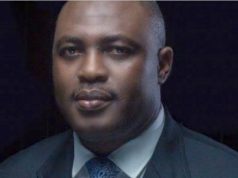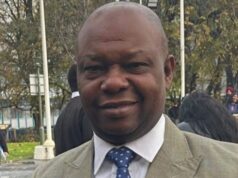The coronation of Senator Rashidi Adewolu Ladoja as the 44th Olubadan of Ibadanland has stirred incredible excitement, nostalgia, and high expectations, the like of which has not been witnessed in its recent history.
For many indigenes and residents, the enthronement of the former Oyo State governor is not just a cultural milestone but also a chance to re-imagine Ibadan’s development. His ascent embodies continuity of tradition and a fresh opportunity to mobilise the city’s immense human and material resources towards progress.
But as the celebrations fade, critical questions emerge: What next? How can Ladoja’s reign translate into tangible development for Ibadanland?
Ibadan, once the largest city in West Africa and still the political capital of the South-West, faces contradictory realities. On the one hand, it boasts a rich cultural heritage, sprawling academic institutions, and a vibrant entrepreneurial base. On the other, the city struggles with poor infrastructure, youth unemployment, environmental degradation, and urban sprawl without adequate planning.
As Olubadan, Ladoja has no constitutional executive powers. Yet, the influence of the throne across political divides is immense. The Olubadan embodies unity, commands respect across social classes, and can set a moral and developmental agenda that rallies elites, politicians, technocrats, and grassroots communities.
Ibadan is blessed with some of Nigeria’s most accomplished sons and daughters—academics, entrepreneurs, bankers, politicians, and technologists. Yet, their collective impact on the city’s development has often been fragmented and hardly noticeable. Ladoja’s first task should be to forge a coalition of elites and professionals under the aegis of the palace to channel resources into sustainable projects—healthcare, ICT hubs, agricultural co-operatives, and skills training. By positioning the palace as a neutral convener, he can rise above partisan divides and inspire collective action.
Ibadan’s degraded physical environment reflects both neglect and opportunity. Drainage issues, poor waste collection, deplorable road connectivity in inner communities, and unregulated buildings create perennial problems, particularly during the rainy season.
While the Olubadan cannot construct roads, he can champion advocacy and public–private partnerships for urban renewal. For example, he can put pressure on government agencies to prioritise Ibadan in infrastructure budgets. He also has the gravitas to encourage private estate developers to commit to affordable housing schemes under royal endorsement. And given Ibadan’s notoriously poor environmental condition, he can promote a “Clean Ibadan Initiative” that mobilises youths for waste management and environmental sustainability. Such symbolic leadership can make development a civic duty rather than a government-only affair.
Aside from environmental conditions, youth employment is a major challenge facing Ibadan. With the city’s exploding youth population, unemployment and underemployment are flashpoints for crime and social unrest. As a former governor and entrepreneur, Ladoja understands the stakes.
He should establish Ibadan Foundation, a trust fund to serve as a vehicle through which wealthy Ibadan indigenes at home and abroad can sponsor vocational training centres, ICT bootcamps, sports academies, and agribusiness training. This trust fund can be the Olubadan’s signature developmental legacy, offering thousands of youths a pathway out of poverty.
Ibadan’s identity is deeply tied to its traditions—the war chiefs, the unique succession system, the festivals, and the historical sites. But modernisation threatens to erode these cultural assets. Ladoja, with his modern exposure and political experience, is well placed to blend tradition with modernity. In this regard, he can spearhead the revitalisation of Mapo Hall as a cultural and tourist hub, collaborate with historians and architects to preserve ancient compounds (agbo-ile) as heritage sites, and encourage schools to integrate Ibadan history and Yoruba language preservation into curricula.
Given Ibadan’s rich heritage, it should be a foremost global tourist destination. Its culture is not just pride—it is an economic asset. Properly managed, cultural tourism can inject a huge amount of money annually into Ibadan’s economy.
Another challenge is insecurity. The rise of kidnapping, cultism, and violent crimes in Oyo State affects Ibadan as the capital. Though policing remains a federal matter, and over time may also become a state function as well, the Olubadan can leverage his influence to enhance community security.
He can convene forums where traditional leaders, vigilante groups, police, and civil society organisations develop localised strategies—early warning systems, neighbourhood watches, and intelligence-sharing frameworks. When communities feel safer, development thrives.
Ibadan is home to Nigeria’s premier university—the University of Ibadan—and several other universities, polytechnics, colleges, and schools. Yet, many public primary and secondary schools in the city suffer dilapidation.
Ladoja should make education the flagship of his reign. Through partnerships with alumni associations and philanthropists, he can drive school renovation projects, scholarship schemes, and book donations, with the earlier mentioned Ibadan Foundation serving as a fulcrum of educational renaissance in Ibadanland. His voice can also champion education policy reforms at the state level. An educated Ibadan is a prosperous Ibadan.
Ladoja’s background as a seasoned politician is both an asset and a challenge. Some may fear that his reign will be coloured by political bias. To truly succeed, he must demonstrate royal neutrality, rising above partisan squabbles to embrace all. By acting as a mediator in Oyo politics, he can reduce tensions and foster stability that allows development policies to flourish. His reign will be judged not by the offices he once held but by how he unites a sometimes divided city.
The Ibadan diaspora is a rich mine waiting to be tapped. Ibadan indigenes in diaspora often send remittances home individually but without coordination. The Olubadan can institutionalise diaspora engagement to increase support for the city from its indigenes abroad, to aggregate skills, investments, and philanthropy for the benefit of the city. From funding hospitals to building libraries, the diaspora can be a critical development partner if properly organised.
Climate change is no longer a distant threat. Flooding, deforestation, and waste mismanagement already endanger Ibadan. Ladoja can spearhead a Royal Climate Agenda: planting one million trees across the city, lobbying for modern drainage systems, and encouraging renewable energy adoption in palace-endorsed projects. This can position Ibadan as a forward-looking African city responding to global environmental challenges.
Ultimately, the new Olubadan’s legacy will not be measured by the number of chieftaincy titles he confers but by whether Ibadanland takes a decisive step towards modern development under his symbolic watch. The simple fact is that Ladoja is unlike any Olubadan we have seen before.
Now that Rashidi Ladoja wears the beaded crown of Ibadan, the city expects more than pageantry. His challenge is to convert influence into impact, culture into capital, and unity into progress. If he can unite elites, inspire youths, safeguard culture, and serve as a moral compass, his reign will be remembered not only as historic but also as transformative.
As Ibadan confronts the 21st century, its destiny lies not only in government policies but also in the vision of its traditional institutions. The Olubadan must seize this moment to set an agenda that bridges past and future, making Ibadanland not just a city of memories but a model of development for Nigeria and Africa.
- Professor Abiodun Raufu, former Editor of Nigerian Tribune and ex-Managing Director and Editor-in-Chief of National Mirror Newspapers, is an Associate Professor of Criminal Justice at Southern University and A&M College in the United States of America and an Ibadan indigene from the Opoowu family compound at Ita Aregbe Omo in Isale Ijebu











